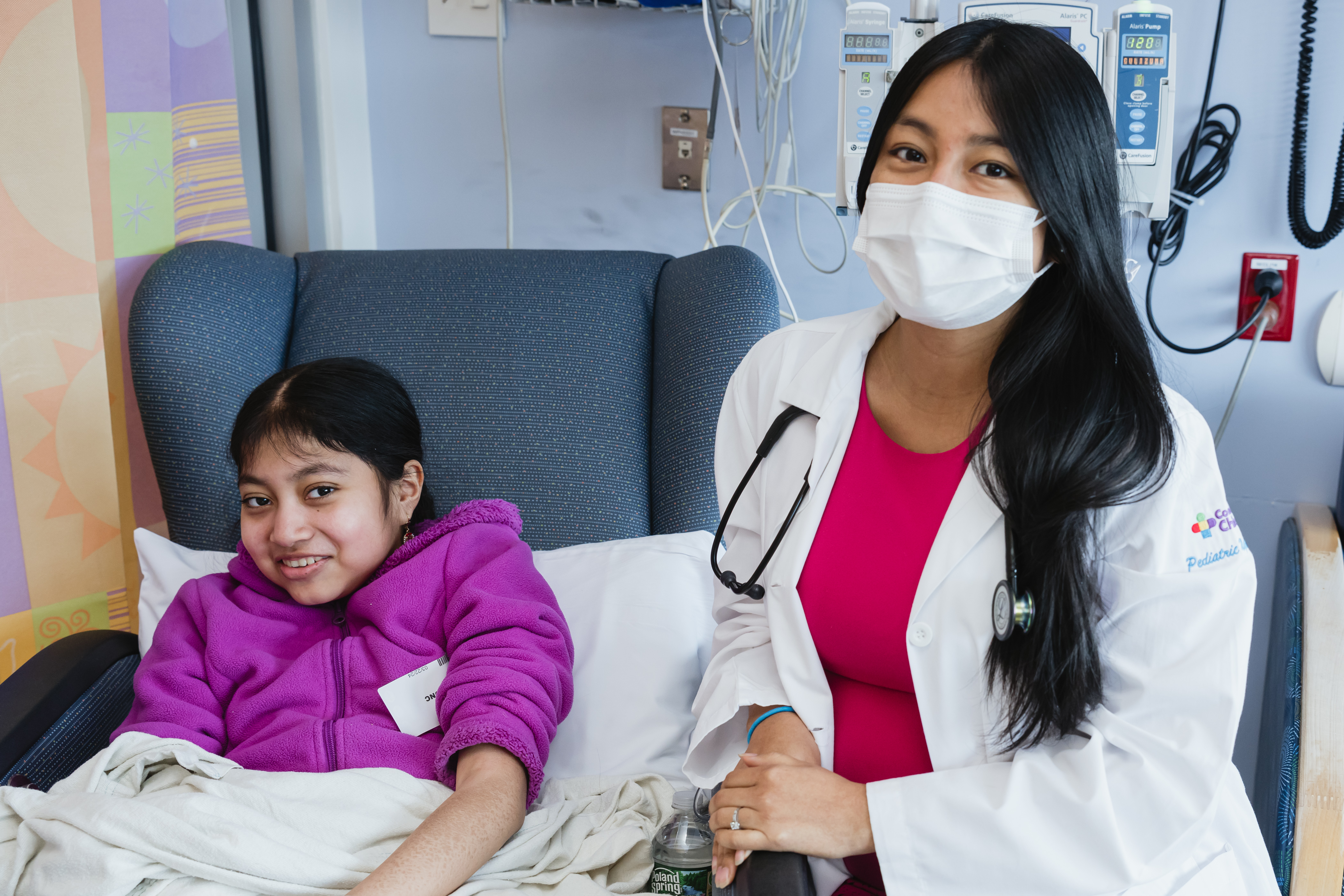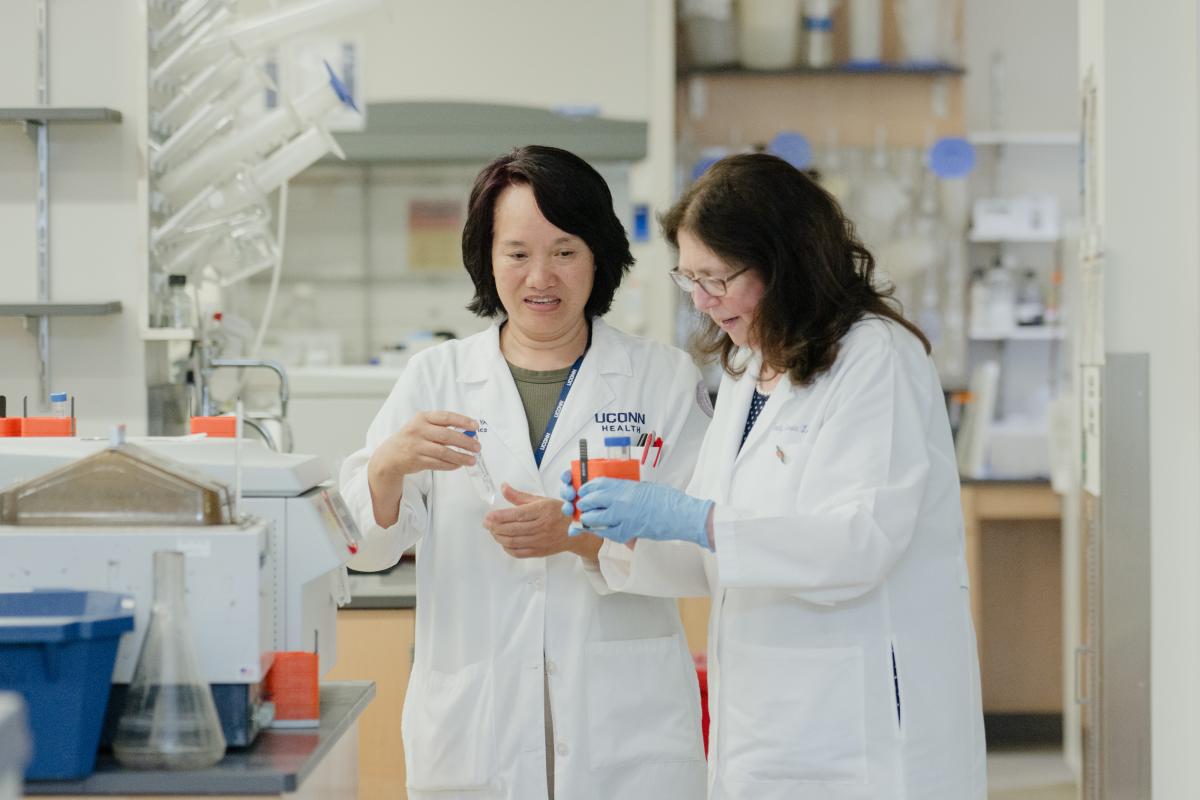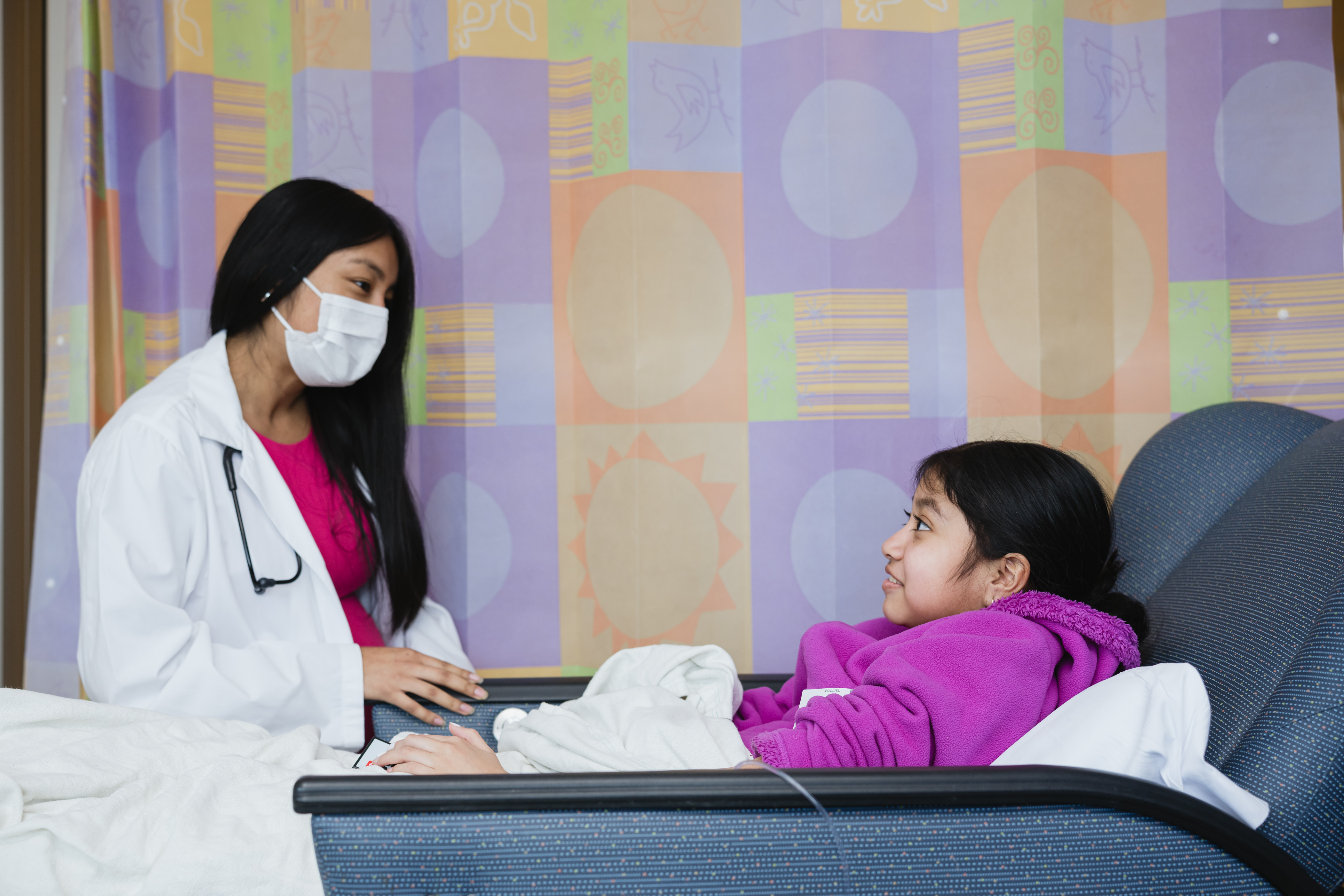Keeping kids with chronic kidney disease out of the hospital
When we think of advances in medical treatment, we may picture laboratories and researchers with high tech equipment. But not all medical research happens in a sterile lab. Sometimes it takes a human touch, a more personal approach, to answer important medical questions. Population health research examines social and environmental factors that determine our health—factors such as where we live, income, education, transportation options, access to healthy food and medical services among others.
And that’s what excites Connecticut Children’s pediatric nephrologist Leonela Villegas, MD, MSCE. She began following her interests in population health and health advocacy while completing her training as a physician and scientist at Children’s Hospital of Philadelphia and earning a Master of Science in clinical epidemiology from the University of Pennsylvania Perelman School of Medicine. It was there that she took care of a 12-year-old patient who had a progressive decline in their kidney function due to underdeveloped kidneys at birth. As their kidney function worsened and they transitioned to dialysis, the child began having complications requiring multiple hospitalizations. This impacted their ability to socialize, attend school and see their family due to transportation limitations and distance from the hospital.
Latest Articles

$1 Million Gift from Big Y Supports Connecticut Children's New Clinical Tower and Expanded Pediatric Services

A New Era of Care Begins: Connecticut Children’s Celebrates the Opening of the New Clinical Tower




